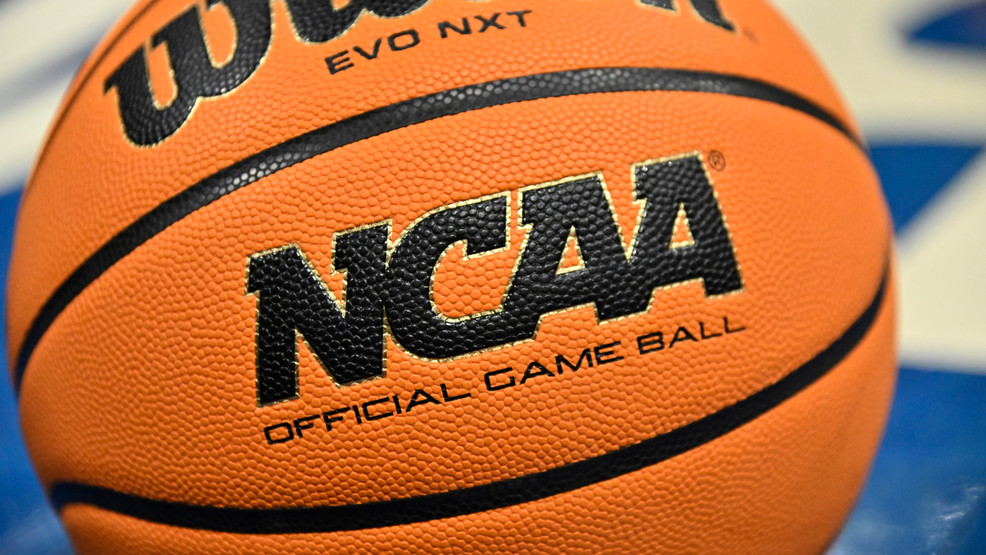WASHINGTON (TNND) — NCAA president Charlie Baker pushed Congress to limit the types of bets gamblers can make on college athletes as the industry continues to expand with more states legalizing sports betting in a multibillion-dollar industry that lawmakers are considering setting up minimum national standards to regulate.
Thirty-eight states and the District of Columbia have legalized the practice in the six-plus years since the Supreme Court struck down the Professional and Amateur Sports Protection Act in 2018, paving the way for sports betting to become the major industry it has quickly developed into.
Tens of billions of dollars are wagered annually in the U.S. on American and foreign sports leagues, including college athletics.
Nineteen states allow for prop bets on player performances in college athletics like the number of points a basketball player will score or passing yards for a college quarterback. Baker said many athletes are pressured into performing in certain ways, such as a basketball player intentionally missing free throws, and subject to threats online and in person when their performance keeps a bettor from winning a wager.
“There’s no doubt that the rise of sports betting has impacted the NCAA and student athletes in a significant way, but none of the consequences are as challenging as the harassment and coercion student athletes are experiencing,” Baker said. “Many have received death threats from bettors, and they also receive other in person threats and accusations directed at them while leaving or coming onto the field of play.”
Threats have been so pervasive at times that the NCAA had to provide one team 24/7 police security during one of its championships due to threats made by a bettor, Baker said.
Johnson Bademosi, a former NFL cornerback, said sports betting being legalized has put additional pressure on athletes to perform that has negatively impacted athletes’ mental health.
“Social media has enabled athletes to take control of their brands and market themselves in ways not possible for previous generations. However, it has also opened an extremely accessible avenue for threats and harassment directed toward athletes and their families alike,” Bademosi said. “Now, players are targeted by gamblers who seek insider information or pressure them to perform, not for the benefit of the team, but because the gambler is financially invested in a specific performance element of individual athletes.”
Sen. Dick Durbin, D-Ill., said the consequences of legalizing sports betting have already been on display, referencing the lifetime ban of former NBA player Jontay Porter for disclosing confidential information to bettors and wagered on games, including his own team to lose.
Advertisements for sports betting are highly visible during sports broadcasts, displayed surrounding the field of play and through direct partnerships with professional leagues that once adamantly opposed legalizing gambling due to concerns about integrity of competition.
“It is virtually impossible to watch a sporting event today without being barraged by ads encouraging you to bet or hearing from a celebrity endorser about the latest parlay you should try and from the industry perspective, it’s a very profitable development,” Durbin said. “But at what cost to the bettor? At what cost to the sport at what cost to the school or the athlete?”
Baker’s testimony came in a broader hearing about the problems posed by the legalization of sports betting. The federal government has not instituted any guardrails for the industry, leaving states to implement their own regulations on wagering. Each state requires approved sportsbooks to provide information about problem gambling and resources to help with gambling addictions but there is no universal federal framework for them to work under.
“Maybe we need to start thinking about rules of the road,” said Sen. Thom Tillis, R-N.C. “On the on the gambling angle, to get this right, or it’s going to get worse and the bad actors are going to exploit more. We’re going to destroy a game that I’m fanatic over. We’re going to destroy this game because of all the other pressures that are coming in and influencing the product.”
A bill introduced by Democratic Connecticut Sen. Richard Blumenthal, the SAFE Bet Act, aims to address some of the issues that have come with legalized gambling. The legislation would ban sportsbooks from advertising during live events, limit the number of deposits a person can make in a limited time period, prohibit the use of artificial intelligence to spur people from place more bets. It would also ban prop bets on student athletes and require the Surgeon General to issue a report on the public health challenges to sports betting.
Other suggestions offered during the hearing included eliminating or limiting “micro-bets,” or wagers that can be placed during a game on what might happen next such as whether an NFL team will get a first down on their next offensive possession or whether a batter will strike out in baseball.
“With the use of technology and AI, the industry and its sports and media partners have turned every micro moment in each game or event into more and more gambling action,” said Dr. Harry Levant, director of gambling policy at Northeastern University’s Public Health Advocacy Institute. “Sports have become the equivalent of a nonstop slot machine.”
With only days left before the current session of Congress ends and several major bills to pass, legislation surrounding federal gambling standards will have to wait until at least next year to be considered. It’s unclear what kind of political will there is among lawmakers for implementing any national standards.
Baker was also frequently put on defense for the NCAA’s policies toward transgender athletes competing in women’s athletics by Republican senators. GOP lawmakers have frequently elevated the issue after Penn swimmer Lia Thomas’ dominance of events. Earlier this year, the GOP-led House approved a bill banning transgender athletes from competing in girls or women’s sports in federally supported schools and colleges.



